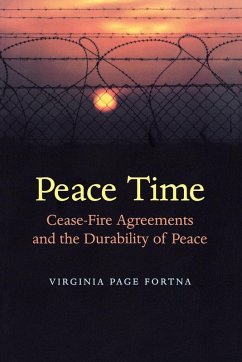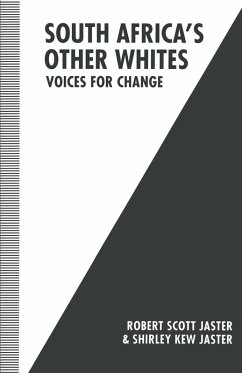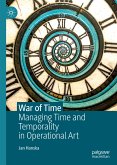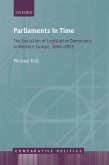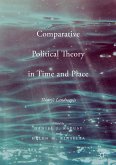Why do cease-fire agreements sometimes last for years while others flounder barely long enough to be announced? How to maintain peace in the aftermath of war is arguably one of the most important questions of the post--Cold War era. And yet it is one of the least explored issues in the study of war and peace. Here, Page Fortna offers the first comprehensive analysis of why cease-fires between states succeed or fail. She develops cooperation theory to argue that mechanisms within these agreements can help maintain peace by altering the incentives for war and peace, reducing uncertainty, and helping to prevent or manage accidents that could lead to war.
To test this theory, the book first explores factors, such as decisive victory and prior history of conflict, that affect the baseline prospects for peace. It then considers whether stronger cease-fires are likely to be implemented in the hardest or the easiest cases. Next, through both quantitative and qualitative testing of the effects of cease-fire agreements, firm evidence emerges that agreements do matter. Durable peace is harder to achieve after some wars than others, but when most difficult, states usually invest more in peace building. These efforts work. Strong agreements markedly lessen the risk of further war. Mechanisms such as demilitarized zones, dispute resolution commissions, peacekeeping, and external guarantees can help maintain peace between even the deadliest of foes.
To test this theory, the book first explores factors, such as decisive victory and prior history of conflict, that affect the baseline prospects for peace. It then considers whether stronger cease-fires are likely to be implemented in the hardest or the easiest cases. Next, through both quantitative and qualitative testing of the effects of cease-fire agreements, firm evidence emerges that agreements do matter. Durable peace is harder to achieve after some wars than others, but when most difficult, states usually invest more in peace building. These efforts work. Strong agreements markedly lessen the risk of further war. Mechanisms such as demilitarized zones, dispute resolution commissions, peacekeeping, and external guarantees can help maintain peace between even the deadliest of foes.
Dieser Download kann aus rechtlichen Gründen nur mit Rechnungsadresse in A, D ausgeliefert werden.

